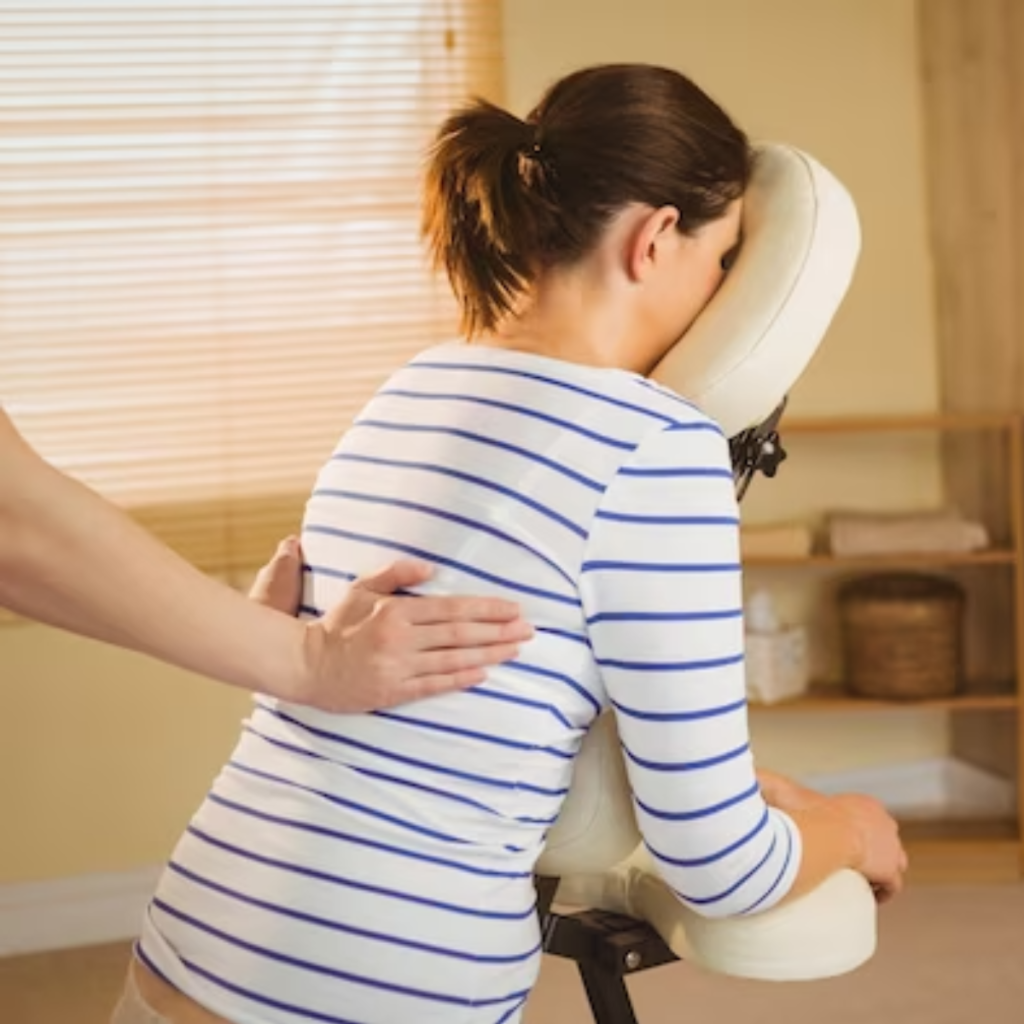Learn how to distinguish between normal postpartum back pain and potentially serious underlying conditions.
How to Differentiate Between Typical Postpartum Back Pain and Something More Serious
Experiencing back pain after giving birth is no picnic. As a new mom, your body has gone through a whirlwind of changes, and dealing with discomfort on top of everything else can be a real bummer. But how do you know if your postpartum back pain is just your body readjusting or something more serious? Let’s dive into the nitty-gritty and learn how to differentiate between the two.

Understanding Postpartum Back Pain
Before we go any further, let’s get to the bottom of what postpartum back pain actually is. It’s not uncommon for new moms to experience some discomfort in their backs, thanks to the heroic effort their bodies put in during labor. But don’t worry, your spine didn’t hit the “self-destruct” button. It’s just adjusting to life after pregnancy.
Postpartum back pain is a common issue that many new moms face. It can range from mild discomfort to severe pain, and it can make daily activities challenging. Understanding the anatomy of postpartum back pain and the common causes can help you find relief and get back to enjoying motherhood.
The Anatomy of Postpartum Back Pain
So, here’s the lowdown: During pregnancy, your body had to make some room for your little bundle of joy. It did this by loosening up ligaments and shifting your weight distribution. This can put some extra stress on your back, causing those pesky aches and pains.
When you’re pregnant, the hormone relaxin is released, which helps to loosen the ligaments in your pelvis to prepare for childbirth. However, this hormone can also affect other joints in your body, including those in your back. The loosening of ligaments can lead to instability in the spine, resulting in postpartum back pain.
Additionally, the weight gain during pregnancy can cause a shift in your center of gravity, putting more pressure on your back. The growing uterus also pushes against the spine, further contributing to back pain. These changes in your body’s structure and weight distribution can take some time to adjust after giving birth.
Common Causes of Postpartum Back Pain
Wondering why your back feels like it’s been doing the tango? Well, there are a few culprits to consider. First off, your abdominal muscles went through a major stretching sesh, leaving them weaker than an overcooked noodle. This means your back has to work harder to pick up the slack. Additionally, all those hours spent nursing and carrying your baby can strain your back muscles, resulting in some discomfort.
During pregnancy, the abdominal muscles stretch to accommodate the growing baby. After giving birth, these muscles may not immediately regain their strength and tone. This lack of abdominal support can put extra strain on the back muscles, leading to postpartum back pain.
Furthermore, the repetitive activities involved in caring for a newborn, such as lifting and carrying the baby, can also contribute to back pain. The constant bending, reaching, and holding positions can strain the muscles and cause discomfort.
It’s important to note that every woman’s experience with postpartum back pain is unique. Factors such as pre-existing back conditions, the type of delivery, and individual body mechanics can also play a role in the development and severity of postpartum back pain.
Now that you have a better understanding of the anatomy and common causes of postpartum back pain, you can take steps to alleviate the discomfort and promote healing. Remember, it’s essential to consult with a healthcare professional for an accurate diagnosis and personalized treatment plan.
Identifying Typical Postpartum Back Pain
Alright, now that we know the background, let’s figure out if what you’re feeling is typical postpartum back pain.
Postpartum back pain is a common concern for many new mothers. It is like that annoying friend who shows up uninvited to every party, making its presence known. This type of back pain typically manifests as a dull ache in your lower back or pelvic area. However, here’s the good news: it usually doesn’t radiate down your leg or cause any tingling or numbness. So if you’re experiencing any of those symptoms, it’s time to dig deeper and seek further evaluation.
Symptoms of Typical Postpartum Back Pain
In addition to the dull ache in the lower back or pelvic area, typical postpartum back pain can also be accompanied by other symptoms. Some women may experience stiffness or tightness in the affected area, making it uncomfortable to move or perform daily activities. Others may notice aching or soreness that worsens with prolonged sitting or standing. These symptoms can vary in intensity and may be exacerbated by certain movements or positions.
It’s important to note that every woman’s experience with postpartum back pain may differ. Some may find the pain to be more constant and severe, while others may have milder and intermittent episodes. The duration and intensity of postpartum back pain can vary from person to person.
Duration and Intensity of Typical Back Pain
Typical postpartum back pain can be as fleeting as your baby’s smiles or as persistent as their cries for attention. It often comes and goes throughout the day, depending on your activities. The pain may be more noticeable after prolonged periods of sitting or standing, as well as during activities that involve bending or lifting.
While postpartum back pain can be a frustrating experience, the good news is that it tends to improve within a few weeks or months. Your body is going through a lot of changes during the postpartum period, and it takes time for it to heal and readjust. Engaging in gentle exercises, such as walking or stretching, can help alleviate the discomfort and promote healing.
However, if the pain lasts longer than a few weeks or months, or if it worsens over time, it’s important to seek medical attention. Persistent or worsening postpartum back pain may be a sign of an underlying issue that requires further evaluation and treatment.
Remember, you’re not alone in this journey. Many new mothers experience postpartum back pain, and there are healthcare professionals who specialize in helping women navigate this discomfort. Don’t hesitate to reach out for support and guidance.
Recognizing Signs of More Serious Back Conditions
While most postpartum back pain is just your body’s way of saying, “Hey, I went through a lot, give me a break!” there are instances where it might be something more serious.
After the miracle of childbirth, your body goes through numerous changes and adjustments. It’s no wonder that your back might be feeling a bit achy and sore. The added weight during pregnancy, the strain of labor, and the constant bending and lifting associated with caring for a newborn can all contribute to postpartum back pain. However, it’s important to be aware of any red flags that may indicate a more serious underlying condition.
Red Flags in Postpartum Back Pain
Red flags are like those flashing neon signs that scream, “Danger ahead!” If your back pain comes with any of these symptoms, it’s time to hit the panic button: shooting pain down your leg, numbness or tingling in your lower body, difficulty controlling your bladder or bowels, or unexplained weight loss. These symptoms could be indicative of a herniated disc, spinal stenosis, or even cauda equina syndrome.
A herniated disc occurs when the soft inner core of a spinal disc pushes through the tough outer layer, irritating nearby nerves. This can cause shooting pain down the leg, known as sciatica. Spinal stenosis, on the other hand, is a narrowing of the spinal canal that puts pressure on the nerves, leading to numbness and tingling. Cauda equina syndrome is a rare but serious condition where the nerve roots at the lower end of the spinal cord become compressed, resulting in loss of bladder or bowel control.
Don’t freak out just yet, but it’s probably best to seek some medical advice if you experience any of these red flag symptoms. Your healthcare provider will be able to evaluate your condition and determine the appropriate course of action.

When to Seek Medical Attention
You know the saying, “Better safe than sorry”? Well, it definitely applies here. While most postpartum back pain resolves on its own with time and self-care, there are instances where medical attention is necessary.
If your back pain is getting worse over time, interfering with your daily activities, or you suspect something more sinister, it’s time to call your doctor. They’ll be able to assess your situation and provide the best course of action. Remember, healthcare professionals have seen it all when it comes to postpartum back pain, so don’t hesitate to reach out for help.
In some cases, your doctor may recommend physical therapy to help strengthen your back muscles and improve your posture. They may also suggest pain management techniques, such as heat or cold therapy, gentle exercises, or over-the-counter pain relievers. In more severe cases, surgical intervention may be necessary to address the underlying cause of your back pain.
Remember, taking care of yourself is essential during the postpartum period. While it’s common to experience some back pain, it’s important to be aware of any red flags and seek medical attention if necessary. By doing so, you can ensure that you receive the appropriate care and support to help you recover and enjoy the precious moments with your little one.
Prevention and Management of Postpartum Back Pain
Now that we’ve covered the ins and outs of postpartum back pain, let’s talk about how to prevent and manage it.
Postpartum Exercises for Back Pain Relief
Who said exercise was only for the gym rats? Turns out, some gentle postpartum exercises can do wonders for your back pain. Strengthening your core muscles will take some pressure off your back. Just be sure to check with your healthcare provider before hitting the yoga mat. Namaste!
Lifestyle Adjustments to Alleviate Back Pain
When life gives you back pain, make lemonade! Okay, maybe not literal lemonade, but making some lifestyle adjustments can definitely help alleviate your discomfort. Pay attention to your posture, use supportive pillows and cushions, and take regular breaks from activities that strain your back. And hey, don’t forget to ask for help when you need it! Supermoms need a break, too.
Medical Treatments for Serious Back Conditions
If all else fails and your back pain is as stubborn as a toddler who didn’t get their way, it may be time to explore some medical treatments.
Common Medical Interventions for Back Pain
Your doctor might suggest a range of interventions, from physical therapy to pain medications. They may even recommend specific treatments based on the cause of your back pain. Remember, they’re the experts, so don’t be afraid to ask questions and advocate for yourself!
Rehabilitation and Recovery from Serious Back Conditions
Just like you need time to recover from childbirth, your back may need some TLC after a serious condition. Rehabilitation can include targeted exercises, lifestyle modifications, and other therapies to help you get back on your feet. It may take time, but remember, you’re a superhero—you’ve got this!
So, there you have it—everything you need to know about differentiating between typical postpartum back pain and something more serious. Remember, mama, it’s always better to be safe than sorry. Take care of yourself and don’t hesitate to seek medical advice if you need it. Your back will thank you in the long run!



